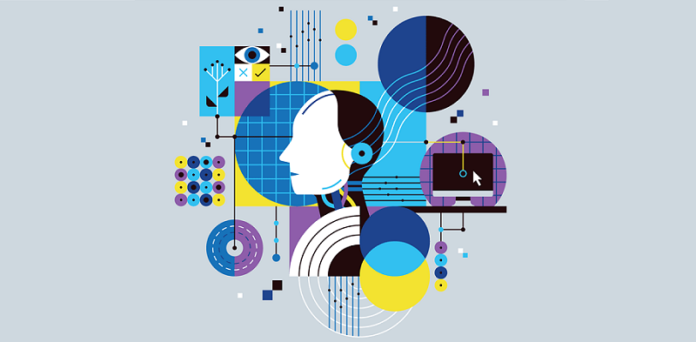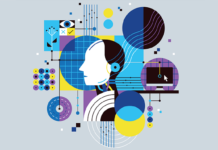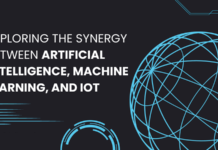The HR department is finding excellent solutions in AI recruiting software. The benefits to the hiring process are numerous.
There is higher efficiency due to the automation of tasks. But most important, perhaps, is the use of data insights to find the right candidates.
Our article explores how enterprises are changing recruitment with AI.
1. AI Recruiting Technology for Finding Candidates
Companies spend time and resources advertising positions on different platforms. But, the approach cannot ensure the right people apply for the positions. A more effective, though costly way is to headhunt.
AI recruiting software has the advantage of covering a wider search area. It will look at public data, career boards, agency databases, and social media platforms for potential hires. The software can sift through millions of data points for the right people.
Even within the company are people who can fit into other roles. A customer care agent may have the skill level to take up marketing roles. Yet, HR may overlook such people because they do not go back to the existing resumes. AI technology can ‘remember’ or resurface such candidates allowing for career growth opportunities.
2. Better Quality of Candidates
Finding candidates is just the first step. The next is ensuring the right quality for the organization.
Think about how many job applications a typical organization gets. The HR teams have to go through each one to find the right candidates. Without a doubt, the process can be time-consuming.
The chances of overlooking the right candidate are also very high. After all, human fallibilities like inattention and boredom can creep in with repetitive, manual tasks.
An AI recruitment platform can go through tons of applications in a short time. The systems use predefined factors to assess the suitability of the candidates. Such include education, skill level, and job or industry experience.
Only those with the right qualifications go through to the next stage. AI technologies like machine learning match the right candidates to the right position.
3. AI Recruiting Saves Time and Money
Think about the typical hiring process. HR writes job descriptions for the position. They post jobs openings and receive tons of applications.
The team sits down and spends hours going through what they have received. They then call in the candidates they have shortlisted for a series of interviews.
Sometimes they go through the process more than once if they don’t find the right fit. The cost and time implication is considerable. This industry put the figures at more than $4100 per recruit.
The right recruiting software increases efficiency and overall cost. It can be especially effective when hiring many people. Finding the right talent also reduces turnover thus saving on new employee onboarding.
4. AI Recruiting Removes Hiring Bias
Look at the language most companies use when trying to attract talent. Words like inclusivity, diversity, and transparency are common terms. Yet, the truth is bias, whether intentional or not is a big issue.
Issues like gender, race, and sexual orientation are common. But there are more than 10 other biases that affect the recruiting process.
The reality is overcoming bias can be very difficult. That is why AI recruiting technologies are critical for ensuring fairness in the hiring process. Developing algorithms or data sets that exclude such biases is key.
Many companies will hire based on referrals. But there is a cost attached to the method. You will only front a candidate who shares certain similarities or beliefs with you. Psychologists refer to this as the ‘similarity principle.’
The challenge is that the candidate pool will lack the diversity that is critical when hiring talent. AI recruiting software ensures inclusivity without reliance on referrals.
5. Better Engagement with Candidates
The job description for HR managers is wide. They may not have time to interact with employees and potential recruits as they should.
You may have applied for a job and did not receive any feedback. There is no one to answer questions.
One disgruntled candidate talking about the poor handling can cast the organization in a bad light.
The automation of the recruiting process with technologies like chatbots helps with better engagement. AI chatbots have smart features that help them customize responses resulting in more intelligent conversations.
From the interaction, the company gets insights that help assess the person’s skill and suitability for the position.
Candidates get quick answers to their queries. The technologies verify qualifications and update candidates in every stage of the hiring process. It frees up HR from having to add on such tasks to their already busy schedule.
6. Remote Worker Hiring
The internet and technology have made remote work easy. That means a company does not have to restrict itself to its geographic location for talent.
But, how do you get the right people to join the organization from far-off distances? Easy, with the use of AI-powered recruiting tools. The software will search platforms and profiles of likely candidates from wherever they are.
Assessing and screening recruits is quick. And it gets better when it comes to the interview stage. An HR manager in the US can interview a potential hire in Africa using video. AI technologies can help yield a lot more information.
They can, for example, analyze nonverbal cues like facial expressions. The recruiting team gets information on things like attitudes, moods, and personality traits. It will help determine whether the candidate is a good fit for the organization.
Final Thoughts
Finding the right talent can be time-consuming and expensive. The tasks are repetitive and prone to human errors and bias.
Reliance on the manual process can result in hiring candidates who are not a good fit. It gets even more costly for the company if they have to repeat the hiring process.
AI recruiting software has so many benefits to the organization. It takes care of repetitive, mundane tasks. It frees up the HR team, allowing them to concentrate on other tasks.
The use of data ensures the right match between the individual and the job. It uses experience, qualifications, and skill levels to make the determination. Race, gender, and other biases do not come into play at all.
Finally, the company can get talent from a wider pool of talent. No more dependence on referrals or geographical location for employees.








